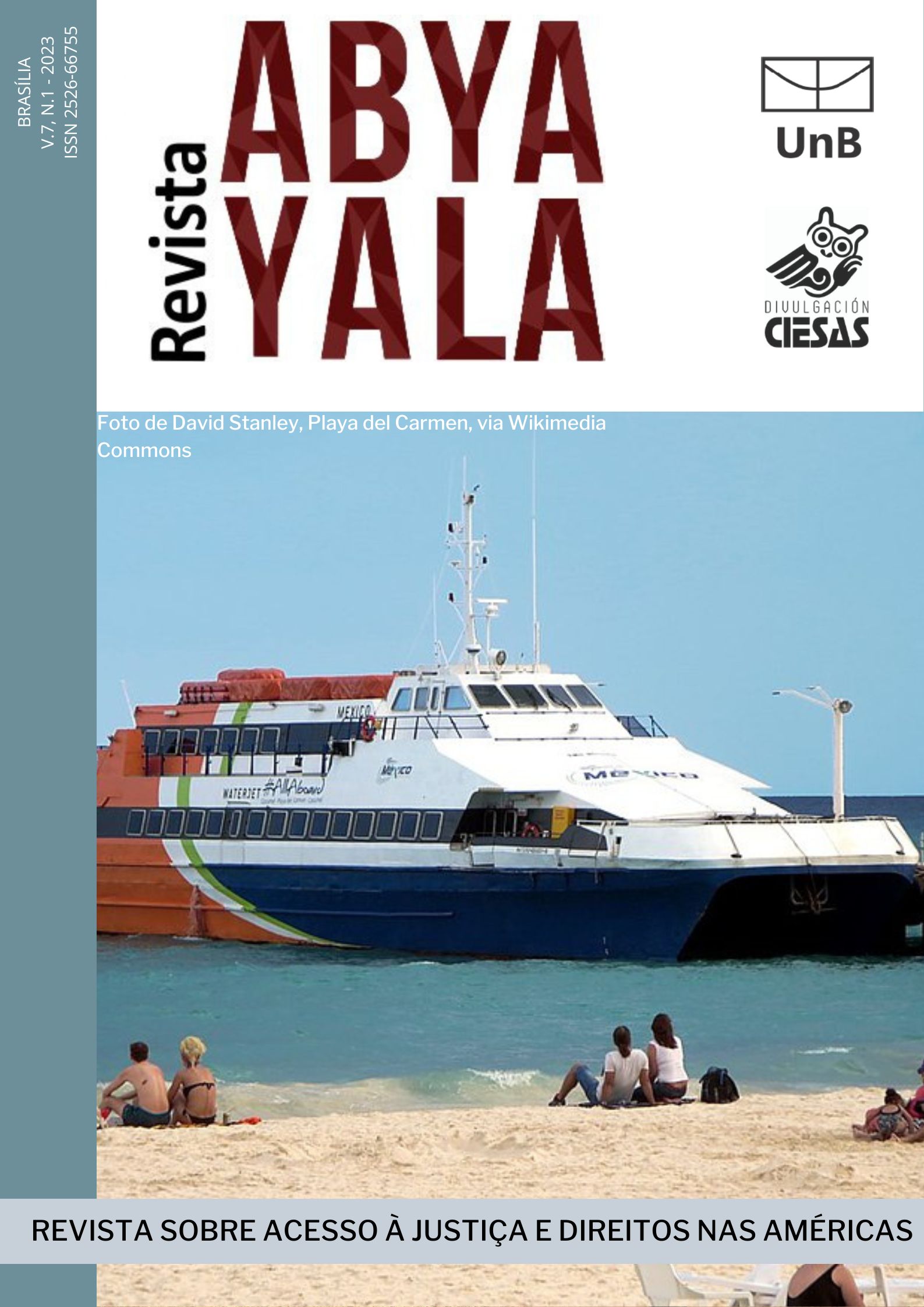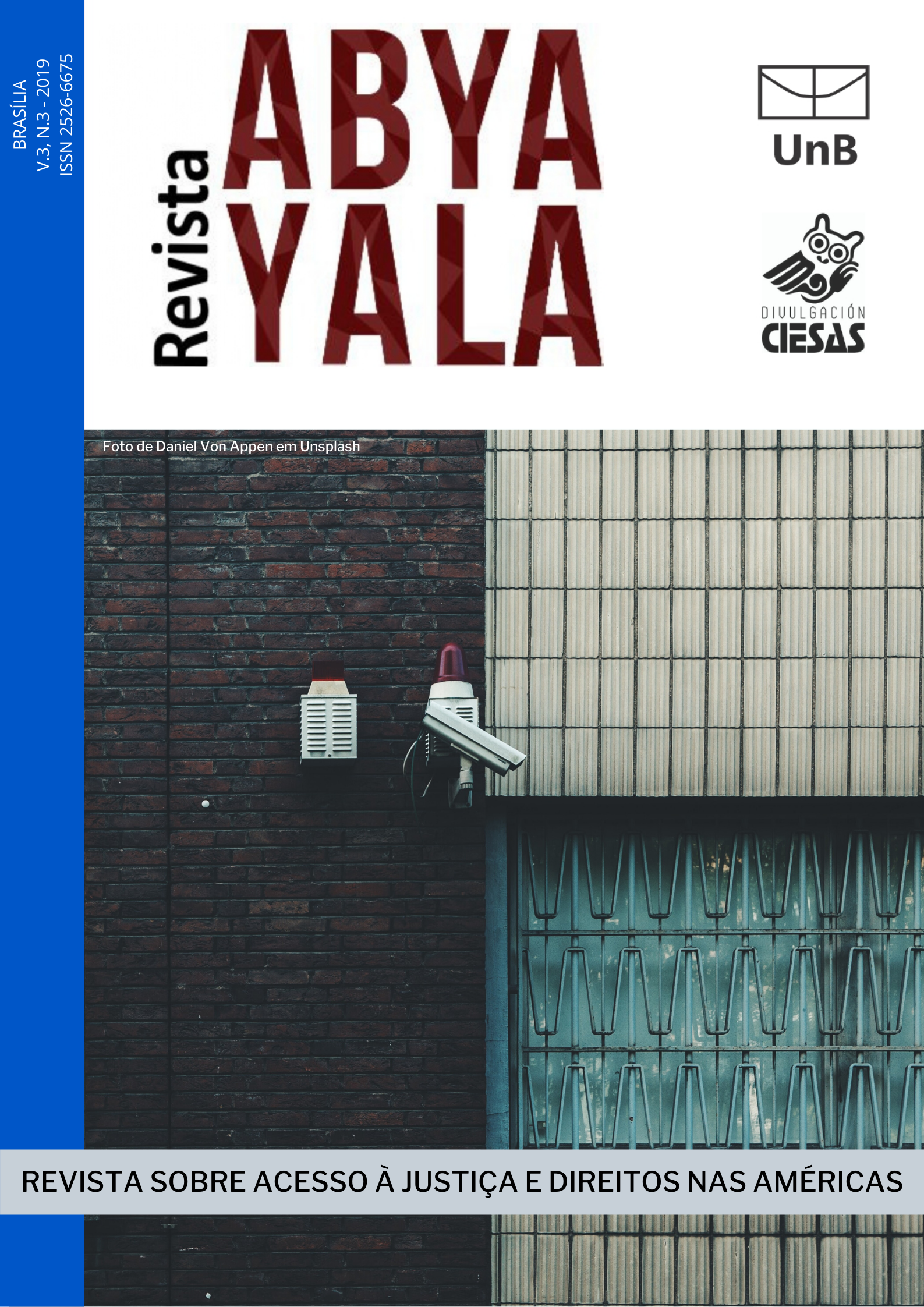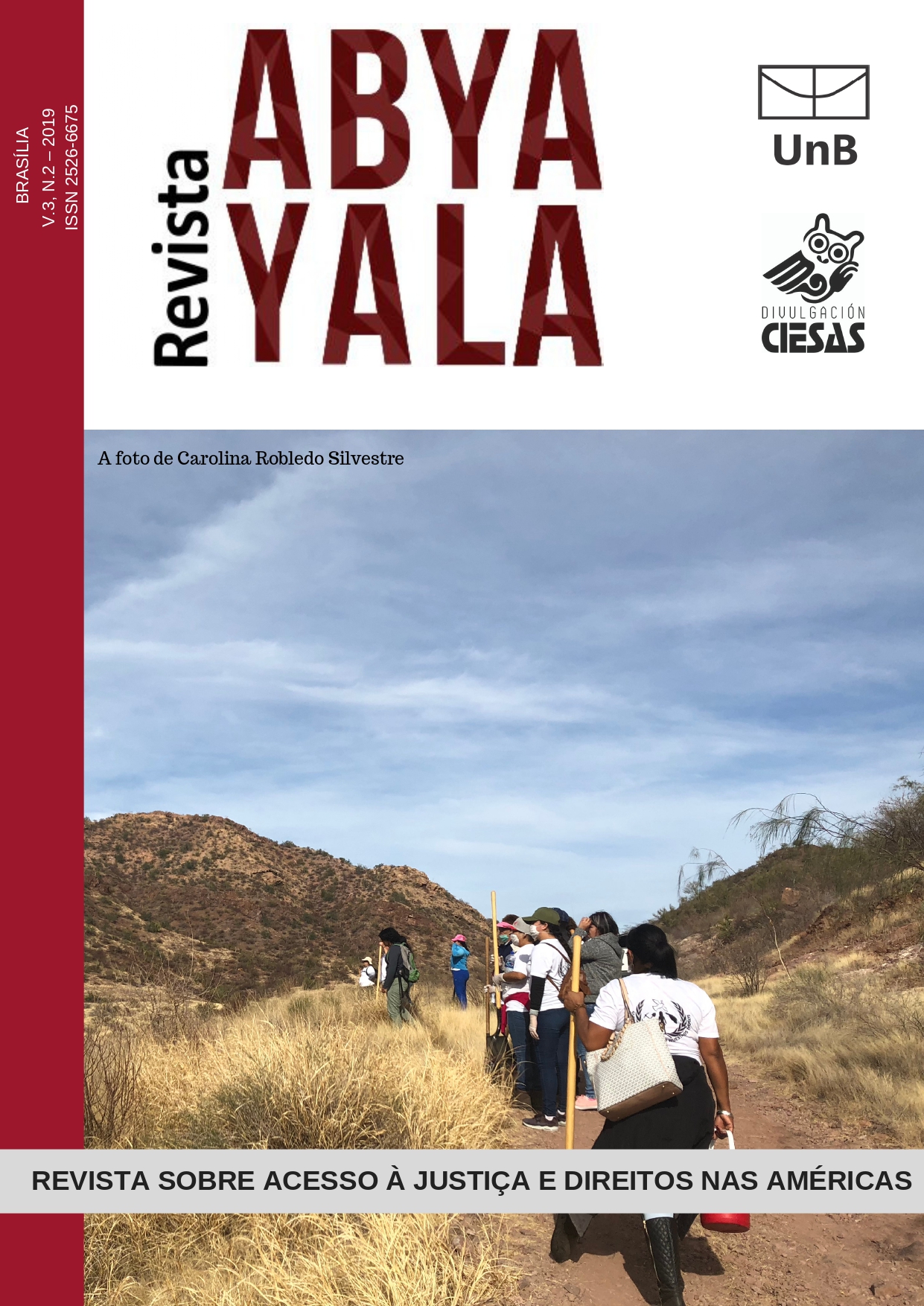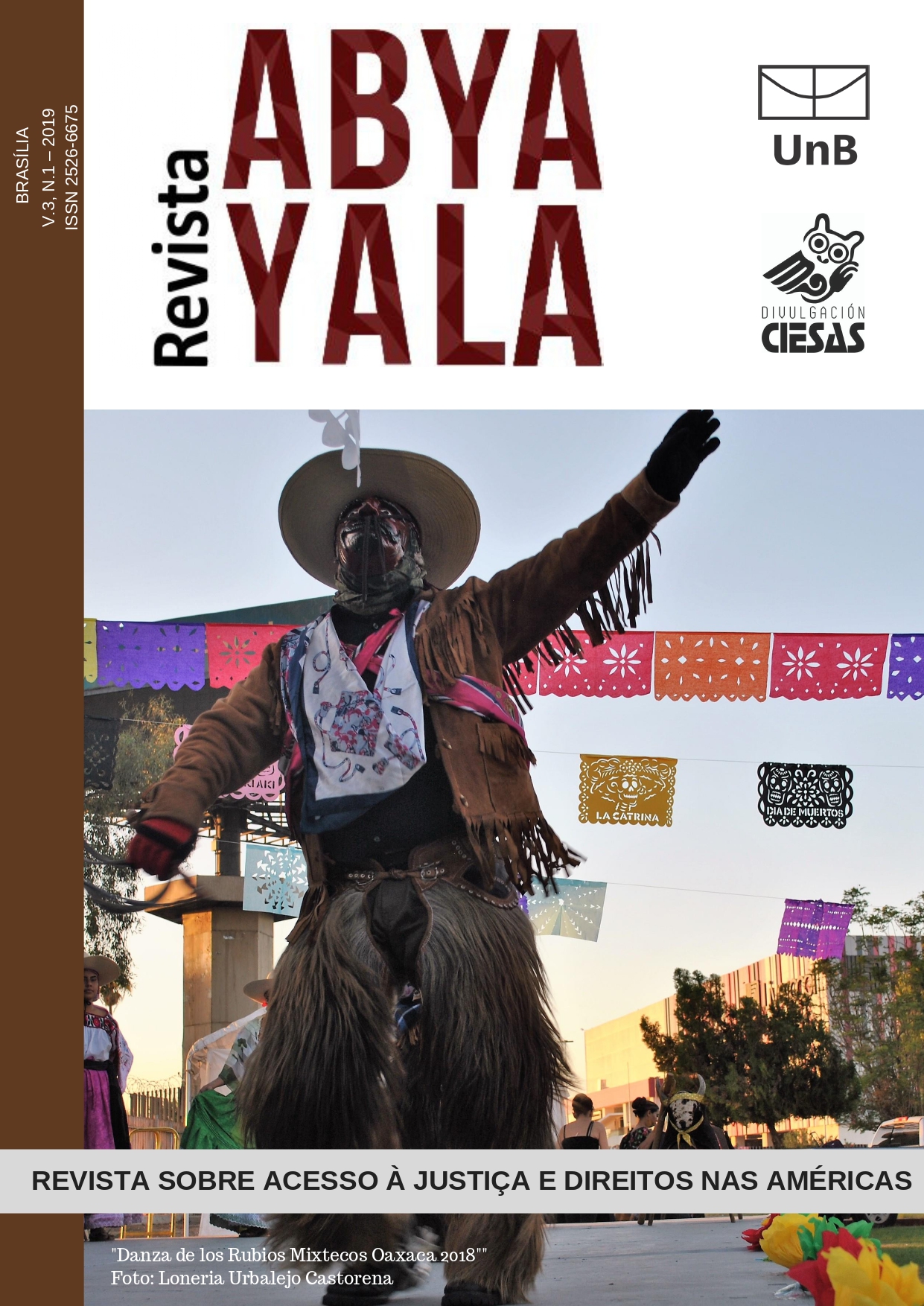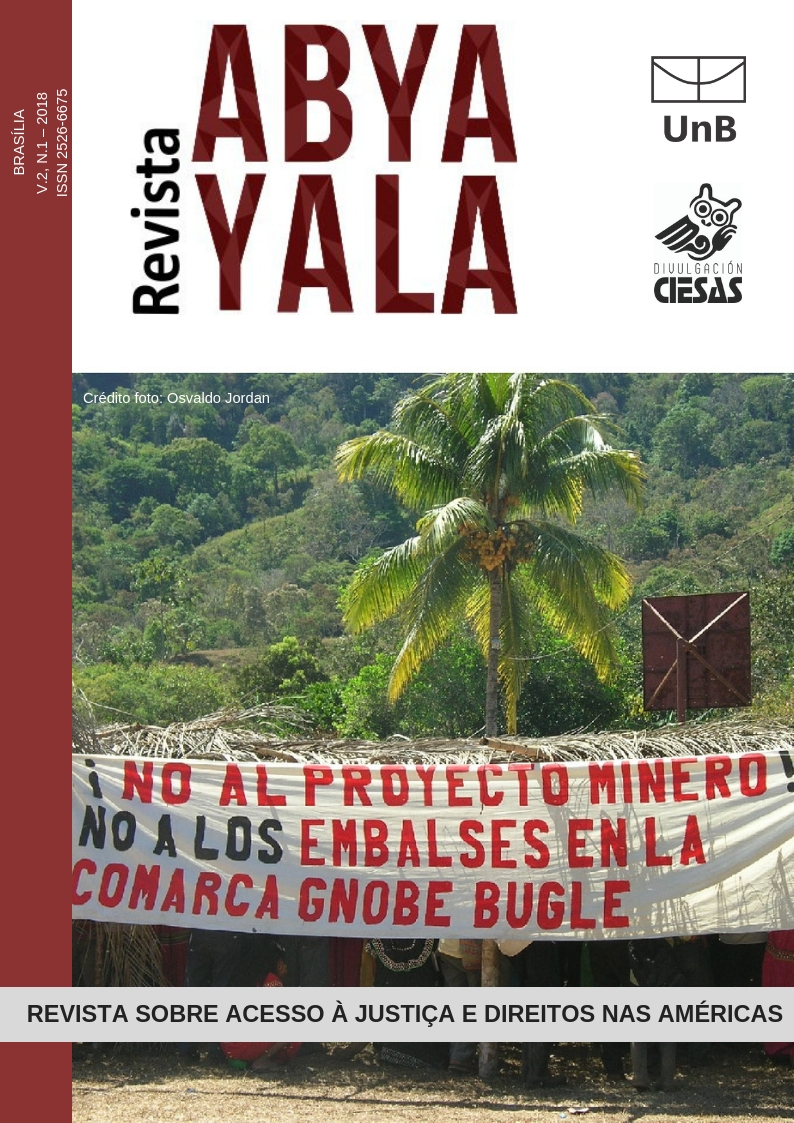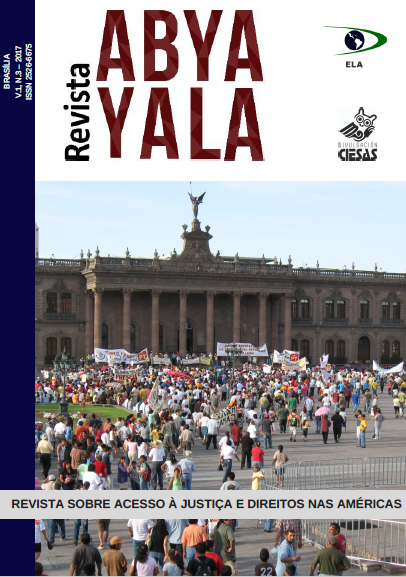Archives
-
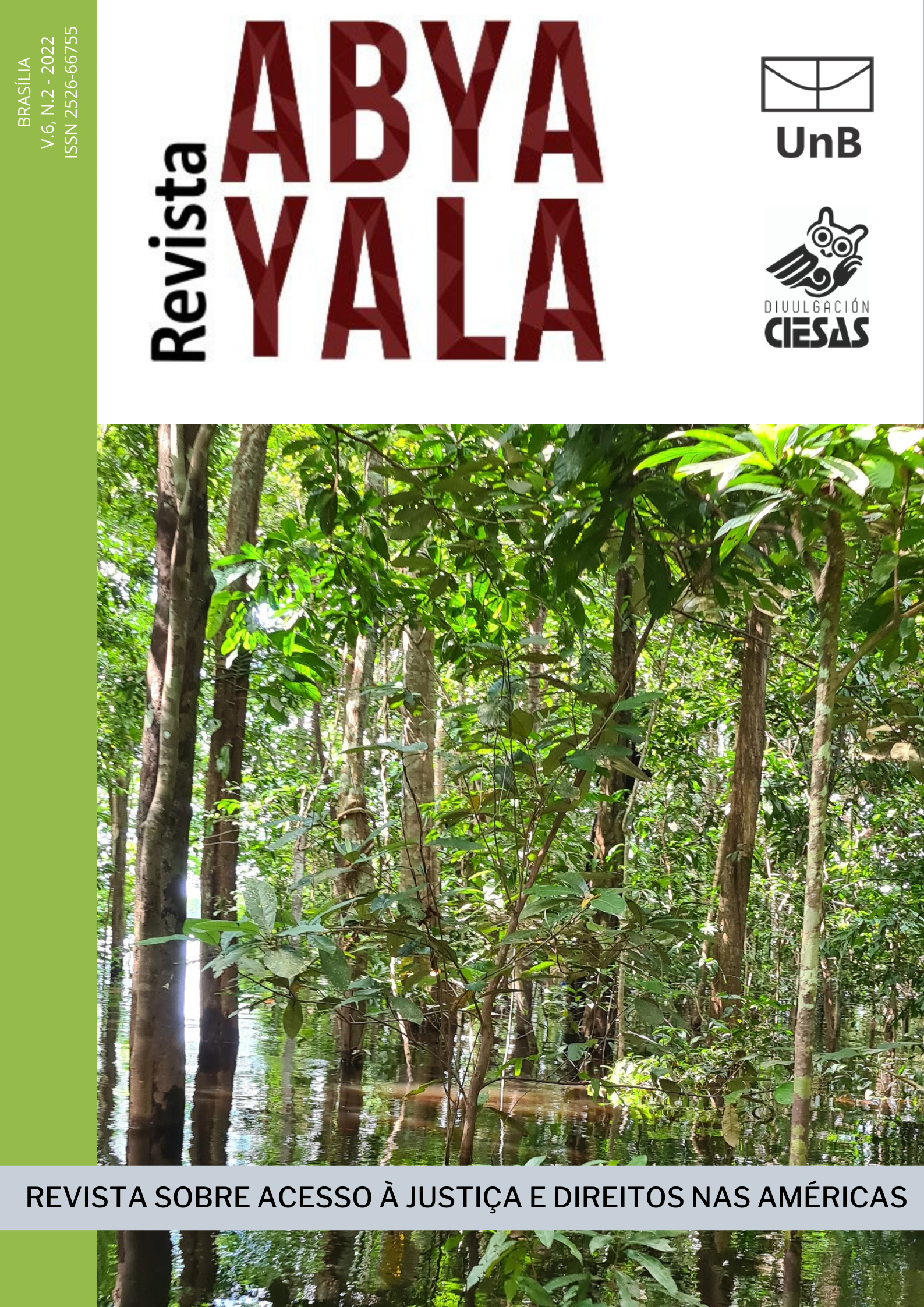
Political conservatism, social movements and guarantee of constitutional rights
Vol. 6 No. 2 (2022)Abya-Yala: Magazine on access to justice and rights in the Americas, reaches its second issue of volume 06, einforcing the magazine's editorial commitment to referencing female thinkers who accumulate contributions to the study and understanding of the major issues that mark the region .
In addition to the homage, the number includes nine articles, a review and a critical essay. It brings a diverse set of Latin American analyzes and reflections, based on various subjects, but which are generally focused on the debate on political conservatism, social movements and the guarantee of constitutional rights. The thematic variety contained in this edition expresses the plurality of views and horizons of analysis that emerge from and about the Americas, a continent marked by profound processes of struggle, dispossession and, above all, resistance.
-
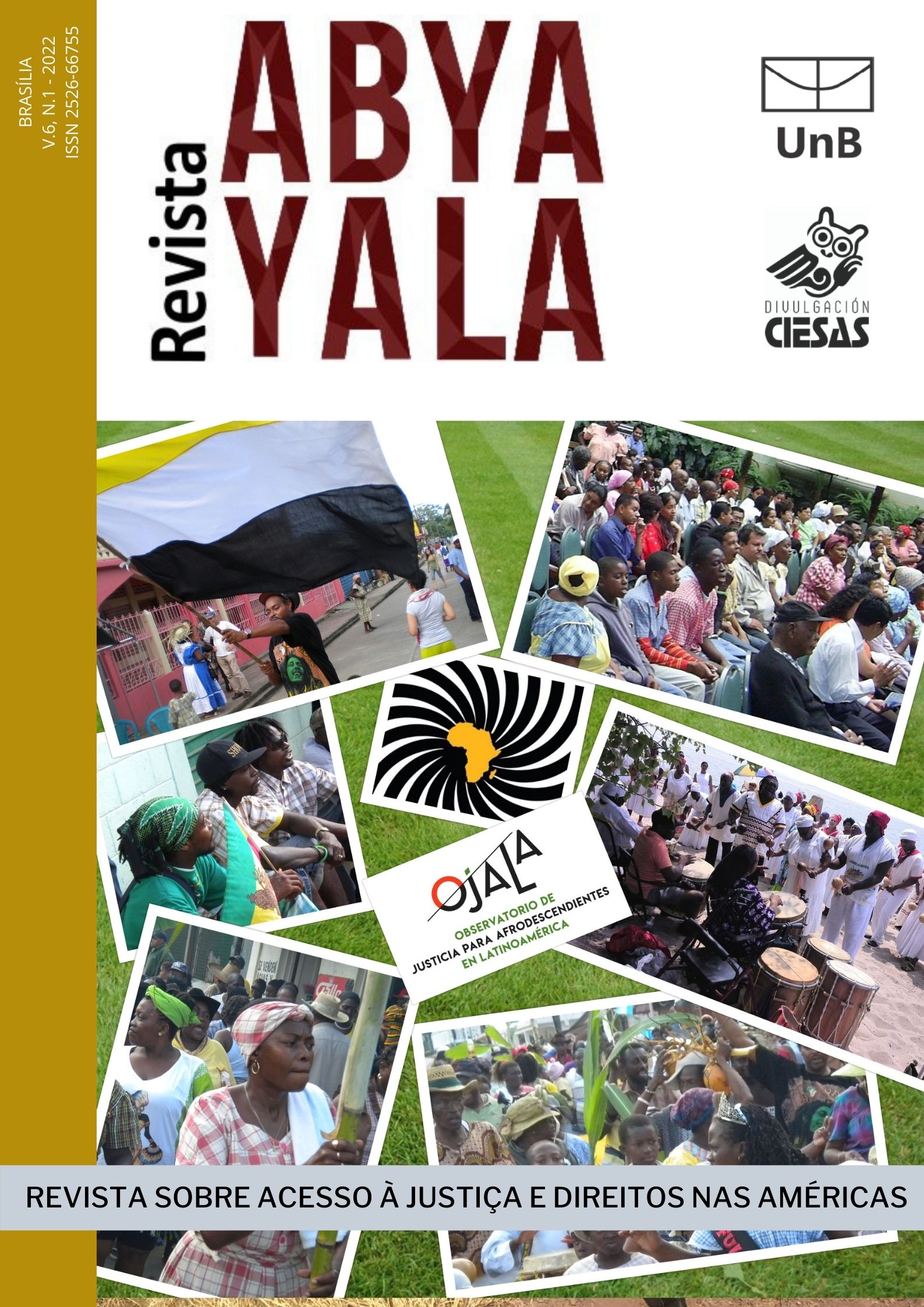
La utilidad relativa y limitada de las ‘leyes étnico-raciales’ para el reconocimiento y defensa de los derechos de los afrodescendientes en su vida diaria y en los sistemas de justicia latinoamericanos
Vol. 6 No. 1 (2022)Dossier
The relative and limited utility of ‘ethnoracial laws’ for the recognition and defense of the rights of Afrodescendants in their daily lives and in Latin American justice systems
This special issue focuses on the practice of Latin American justice systems with regards to the application of “ethnoracial laws” and the recognition and defense of Afrodescendants’ rights. Contributions focus on an individual national context. The intention is to explore recent litigations or complaint processes in light of current socio-political developments in the region, with the aim of discovering what they possibly herald for the future of ethnoracial laws and the rights of Afro-descendants in the decade that just started. We understand that “ethnoracial law” includes: 1) articles of constitutions and special laws that recognize and define collective rights based on ethnoracial identity (multicultural legal instruments); and 2) constitutional articles and special laws often referred to as ‘racial equality law’ or ‘anti-discrimination law’.
Co-editado por:
Carlos Efrén Agudelo
Associate Researcher, URMIS-Migration and Society
Research Unit
University of Paris VII, and University of Nice
Development Research Institute
agudelo04@yahoo.fr
France
Orcid: 0000-0003-3157-4763
Jhon Antón Sánchez
Associate Professor, Centro de Gobierno y Administración Pública
Instituto de Altos Estudios Nacionales (IAEN)
jhonanton@hotmail.com
Ecuador
Orcid: 0000-0001-9666-6349
Jean Muteba Rahier
Professor of Anthropology and African & African Diaspora Studies
Department of Global & Sociocultural Studies
Florida International University (FIU)
jrahier@fiu.edu
United States
Orcid: 0000-0002-0526-4860
-
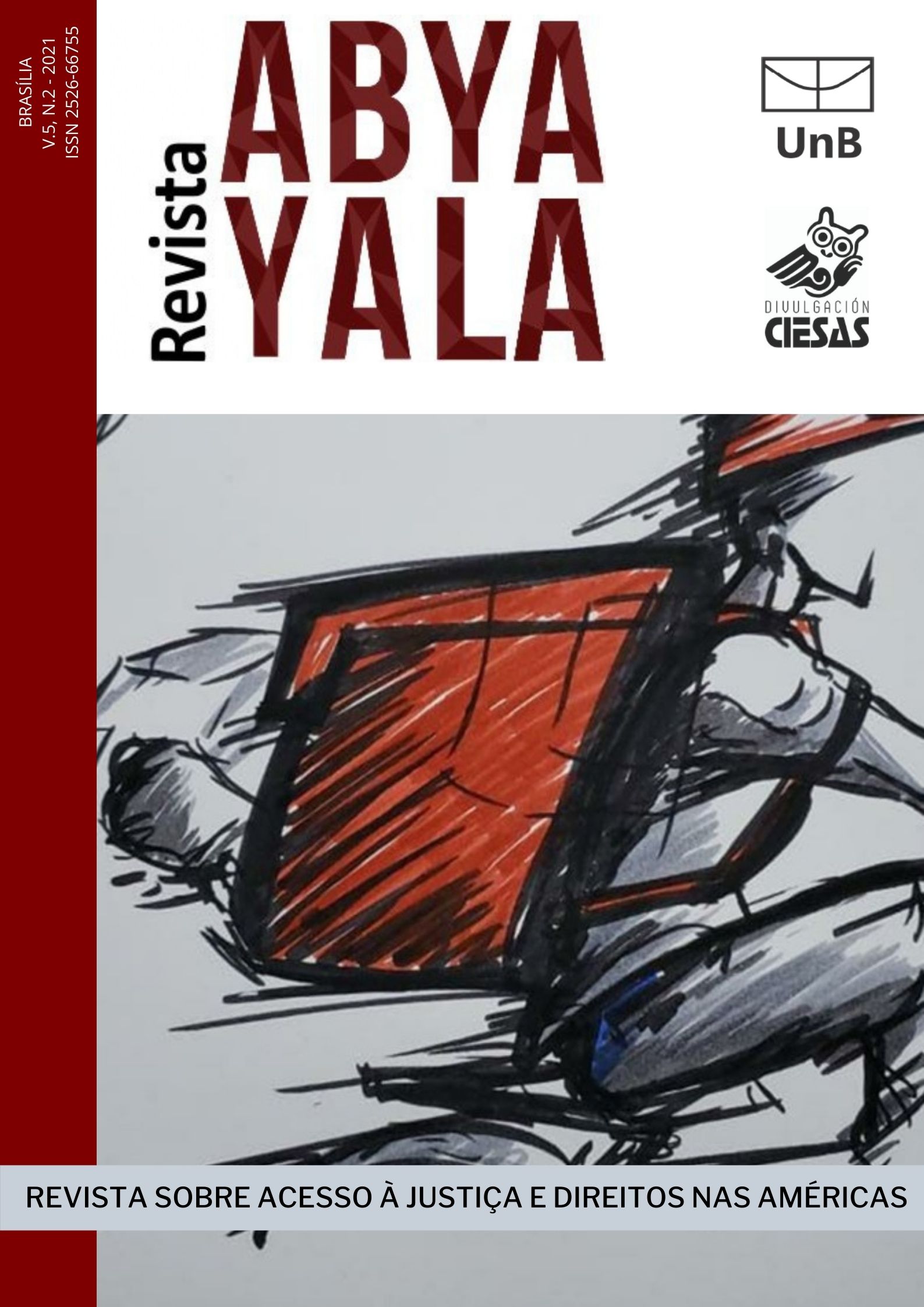
Projections for the labor world in the 21st century
Vol. 5 No. 2 (2021)Projections for the labor world in the 21st century
This dossier is organized by the Labor, Constitution and Citizenship Research Group and the Latin American College of World Studies, and it seeks to provide a reflection on work and labor relations in the current context of the advance of neoliberalism, the growth of inequalities and the rise of political authoritarianism. This context is characterized by the existence of new forms of exploitation and precarious labor in the framework of the fourth technological revolution juxtaposed with old forms of exploitation of human labor that still persist, such as informal, child and slave labor. Rather than provide a description of labor relations today, the dossier seeks to debate the very definition of work and workers’ identity and reflect on its relationship with other social identities such as gender, race, ethnicity and sexualities, taking into account the local particularities and territorial diversification. We seek to carry out a sociological and legal reflection on how to (re) think and (re) define work in the current context and the challenges for the reconstruction of labor relations that guarantee social progress and the protection of human and fundamental rights, backed by human dignity and by civilizing humanistic parameters. This reflection becomes even more important in view of the implications of the COVID-19 pandemic.
-
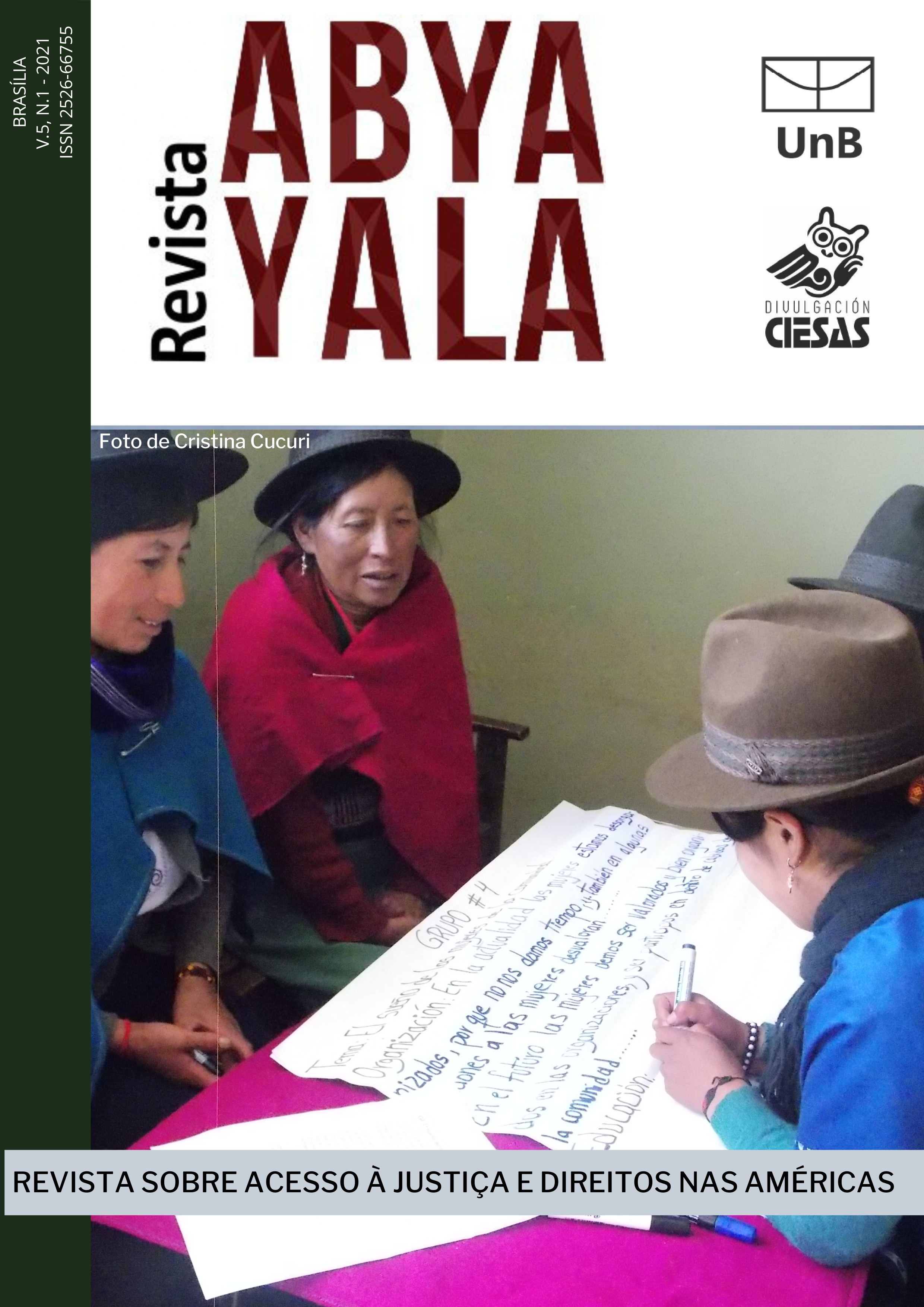
Legal Pluralism in Latin America in Times of Crisis
Vol. 5 No. 1 (2021)Volume 5, no. 1, 2021
Special dossier on Legal Pluralism in Latin America in Times of Crisis, in honor of André Hoekema, organized by Elisa Cruz Rueda, Fátima El Fakih Rodríguez, Rosalva Aída Hernández Castillo and Esther Sánchez Botero.
-
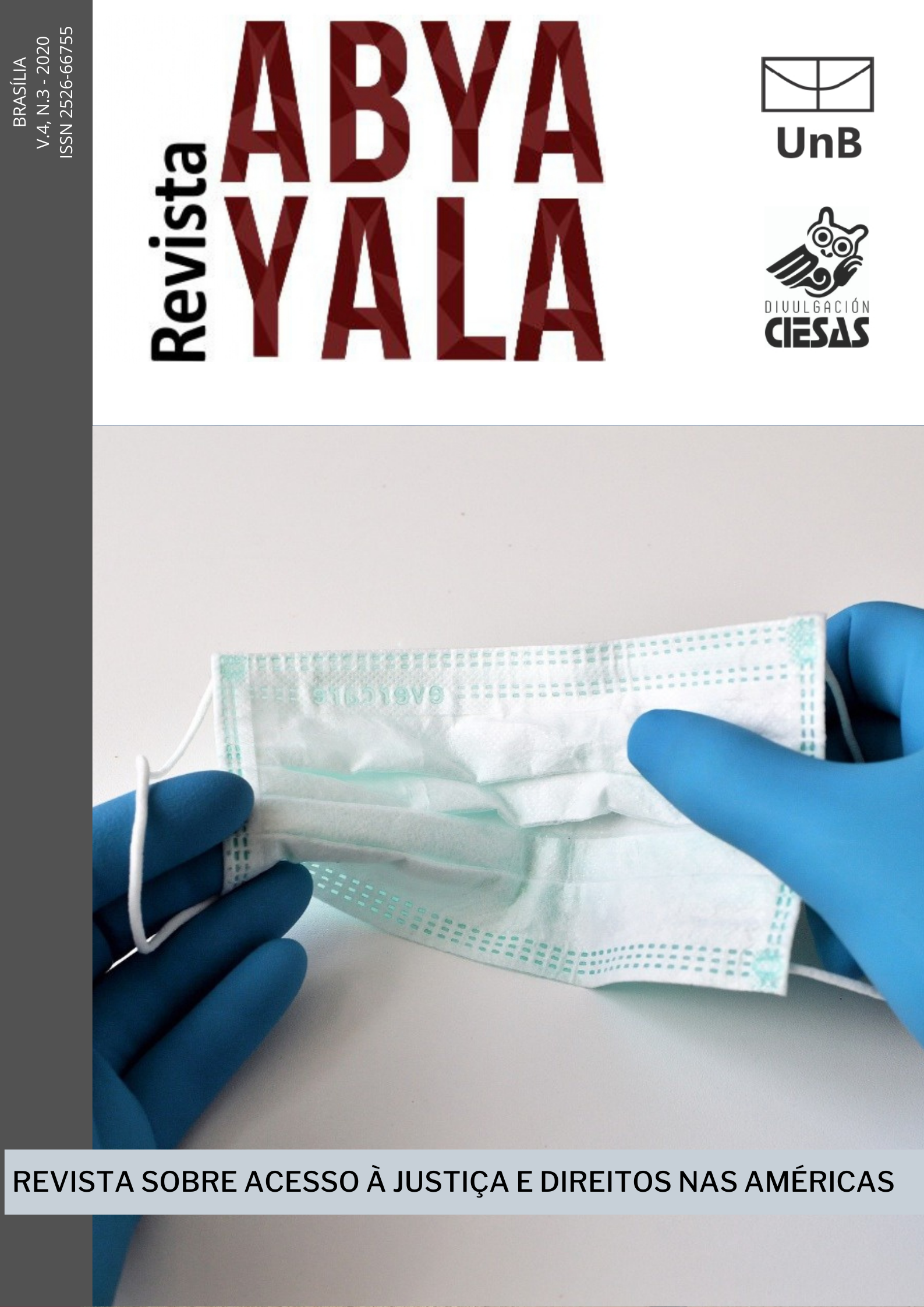
Dossier "COVID-19 Pandemic"
Vol. 4 No. 3 (2020)Dossier "COVID-19 Pandemic"
The dossier brings together reflections elaborated by different researchers and researchers on the COVID-19 pandemic.
-
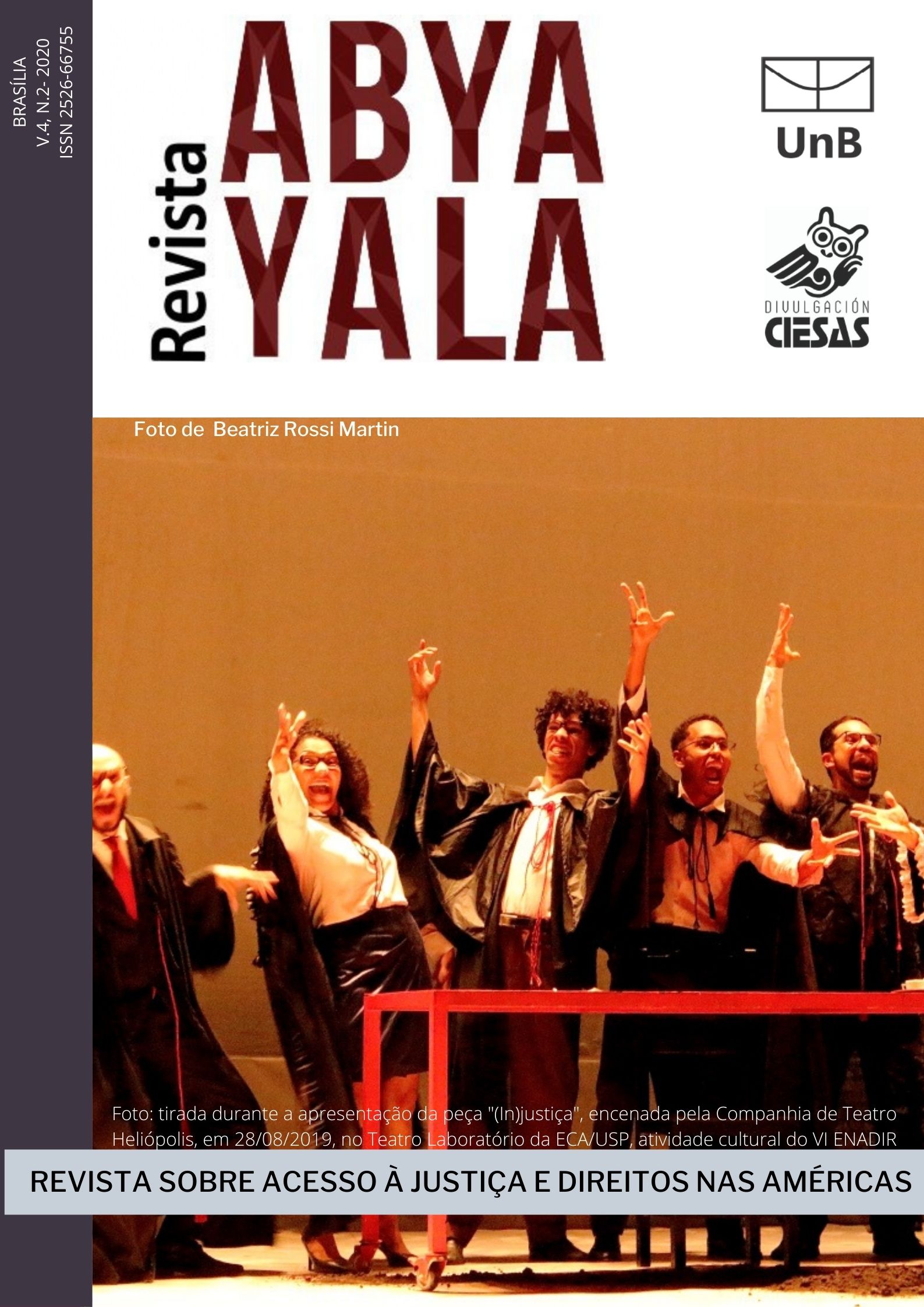
Dossier VI ENADIR - National Meeting of Anthropology of Law
Vol. 4 No. 2 (2020)Dossier organized by Professors Ana Lúcia Pastore Schritzmeyer and Bruna Angotti gathering some works presented at the VI ENADIR - National Meeting of Anthropology of Law, held between August 26 and 29, 2019 at University of São Paulo, in Brazil.
Link: https://enadir-2019.blogspot.com/
-

Intersectionality, documentation and violence: Indigenous and Afro-descendant Women of the Americas
Vol. 4 No. 1 (2020)Dossier Intersectionality, documentation and violence: Indigenous Women and Afrodescendants of the Americas
Organizers: Dolores Figueroa Romero and Natalia De Marinis
From different contexts, from Nicaragua's Atlantic coast to Canada's central provinces, this special issue analyses and documents the extreme and structural violence affecting the lives of indigenous and Afro-descendant women. Several of the essays centrally address femicide and its relationship with other violence in order to contribute to the understanding of femicide and actions in search of justice and from an intersectional reading. The political and analytical positions that inspire these reflections aim to engage in a critical dialogue with both academia and anti-femicide feminist activism from an rooted perspective that prioritizes empirical observation and dense knowledge of contexts. The authors of this dossier contribute to opening paths of understanding that reveal blindness, prejudice and universalist views on experiences of differentiated discrimination, social harm and claims of rights from specific rationalities and experiences.
-
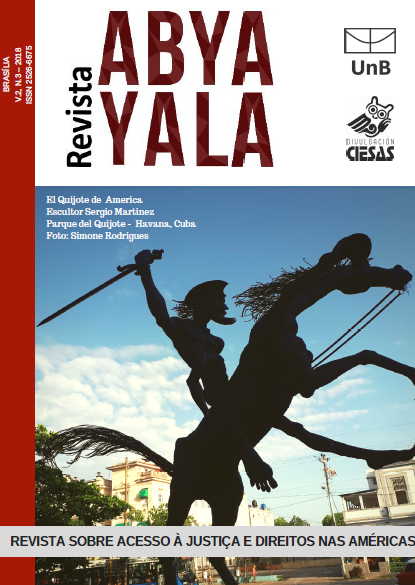
THE LEFT TODAY: dialogues Latin America and Europe
Vol. 2 No. 3 (2018)Volume 2, número 3, ano 2018
A edição, que homenageia Rui Mauro Marini, divulga o dossiê “Direitos Humanos, América Latina e Caribe nos 70 anos da Declaração Universal”, organizado por David Sánchez Rubio e participação de Alejandro Medici, Hernando León Londoño Berrío, Óscar de La Torre e Pilar Cruz-Zúñiga.
Na seção “Debates”, inaugurada nesta oportunidade, são apresentadas reflexões realizadas durante o seminário “As Esquerdas na Atualidade: Diálogos América Latina e Europa”, ocorrido na Universidade de Brasília, em 2017, com participação de Rebecca Lemos Igreja, Camilo Negri, Jacques de Novion, Michel Wieviorka, Constanza Moreira, Consuelo Sánchez e Héctor Díaz-Polanco, Juan Carlos Monedero, André Singer, Rogerio Gugliano e Lucas Monte.
Ao final, na seção “Entrevistas”, está disponibilizado o conjunto de entrevistas que foram realizadas pelo professor Jacques de Novion, do Departamento de Estudos Latino Americanos, às debatedoras e aos debatedores do evento.
-
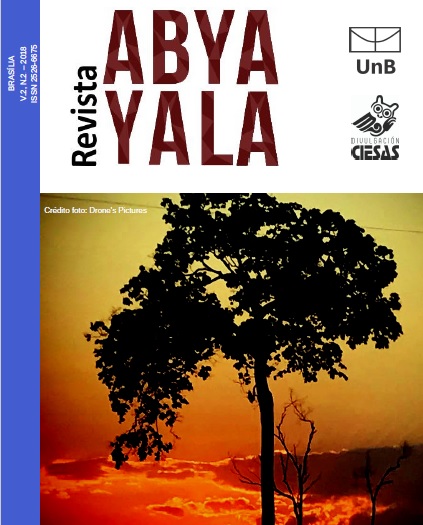
INDIGENOUS MEMORIES: Silences, forgetfulness, impunity and claim of rights and access to justice
Vol. 2 No. 2 (2018)Abya-Yala - journal on access to justice and rights in the Americas arrives at its fifth edition, the second issue of 2018, at an emblematic moment for the sciences and critical thinking: a moment in which the advance of conservative forces and fascist behaviors threaten the rights built and conquered, understood as a synthesis of processes of struggle historically fought by the Latin American peoples.
In respect of the denied histories and in reaction to the silencing provoked against the Abya Yala people, this fifth issue of the magazine disseminates the dossier "INDIGENOUS MEMORIES: Silences, forgetfulness, impunity and claim of rights and access to justice", organized by Ana Margarita Ramos, Professor from the National University of Rio Negro, Argentina, and by Ricardo Verdum, Professor from the National Museum / UFRJ, Brazil. In it, thinkers and thinkers from different countries, nationalities and territories have converged their efforts and experiences together to elaborate a set of critical and necessary reflections on the subject in the Americas. Its organizers, long experienced researchers attentive to the importance of the memory dispute, present the foundations of the dossier in the opening text, which we recommend reading to assess the relevance of the reflections that are synthesized in it.
-
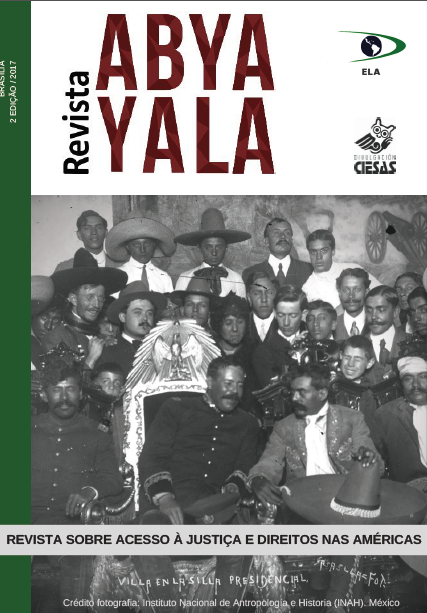
CONTRIBUIÇÕES DESDE ABYA-YALA
Vol. 1 No. 2 (2017)A segunda edição de “Abya Yala: revista sobre acesso à justiça e direitos nas Américas” mantém a proposta de nossa revista em constituir um espaço de análise latino-americano sobre os direitos humanos e o acesso à justiça, assim como sobre os diversos problemas sociais que dificultam e impedem a realização desses direitos. Nesse sentindo, são discutidas situações de opressão, dominação e espoliação das quais vários povos do continente são historicamente vítimas.
-
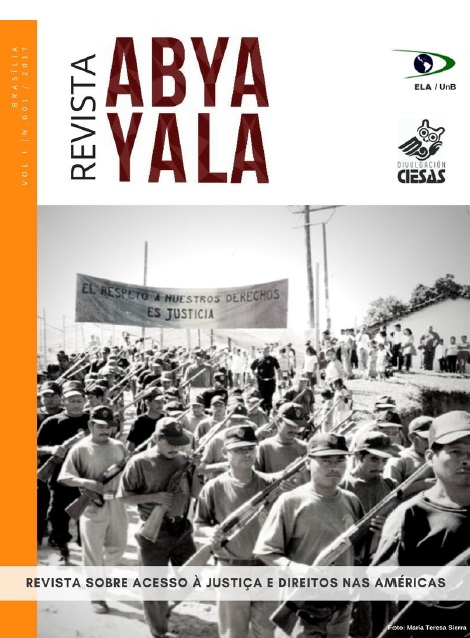
ABYA-YALA: REVISTA SOBRE ACESSO À JUSTIÇA E DIREITOS NAS AMÉRICAS
Vol. 1 No. 1 (2017)Abya-Yala is a journal that aims to encourage and disseminate, in the field of human and social sciences, studies on justice and rights from the different contexts of Latin America and America in general. It intends, in particular, to give rise to critical, multidisciplinary, multicultural, plural and comparative studies and reflections on access to justice, which is both a phenomenon and an analytical category, an instrument of domination or a human right.

